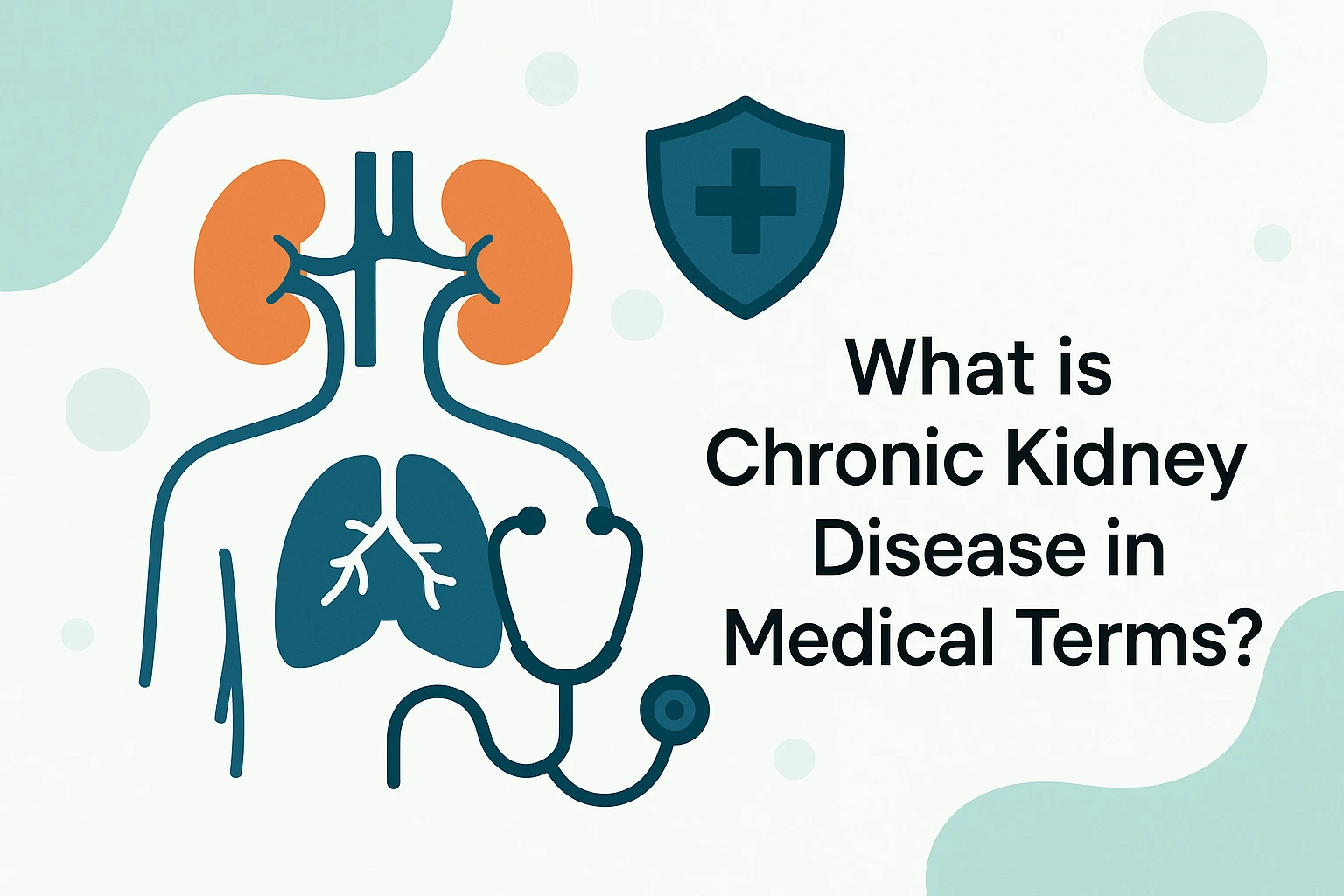Chronic Kidney Disease (CKD) is a progressive condition where the kidneys gradually lose their function over time. The kidneys are essential for filtering waste products and excess fluids from the blood, regulating blood pressure, and maintaining a healthy electrolyte balance. In CKD, this ability is impaired, leading to the buildup of waste and fluids in the body. If left untreated, CKD can progress to kidney failure, a condition requiring dialysis or a kidney transplant.
If you are at risk of CKD or experience symptoms such as swelling, fatigue, urine changes, or high blood pressure, it’s important to consult a healthcare provider for early detection. Early diagnosis and treatment can help preserve kidney function and reduce the risk of further complications.

Stages of Chronic Kidney Disease
CKD is classified into five stages based on the level of kidney function, determined by the glomerular filtration rate (GFR):
- Stage 1: Normal kidney function but signs of kidney damage, such as protein in the urine.
- Stage 2: Mild decrease in kidney function (GFR 60-89).
- Stage 3: Moderate decrease in kidney function (GFR 30-59), where symptoms such as fatigue, swelling, and urine changes may start to appear.
- Stage 4: Severe decrease in kidney function (GFR 15-29), with increasing symptoms and a higher risk of complications like high blood pressure and anemia.
- Stage 5: End-stage kidney failure (GFR < 15), where dialysis or kidney transplant is needed.
Chronic Kidney Disease Causes and Risk Factors
The main causes of chronic kidney disease include:
- Diabetes: High blood sugar levels damage blood vessels in the kidneys, impairing their function.
- High blood pressure (hypertension): Increased pressure on the kidney’s blood vessels can lead to kidney damage over time.
- Glomerulonephritis: Inflammation of the kidneys’ filtering units (glomeruli), which can lead to CKD.
- Polycystic kidney disease (PKD): A genetic disorder that causes fluid-filled cysts to form in the kidneys, impairing their function.
- Heart disease: Conditions like heart failure or coronary artery disease can affect kidney health.
- Family history: A family history of CKD or kidney disease increases the likelihood of developing the condition.
Other risk factors include age, smoking, obesity, and inflammatory diseases such as lupus.
Symptoms of Chronic Kidney Disease:
In the early stages of CKD, symptoms may not be noticeable. As the disease progresses, the following symptoms may appear:
- Fatigue and weakness
- Swelling in the legs, ankles, or feet due to fluid retention
- Frequent urination or changes in urine color
- Shortness of breath due to fluid buildup in the lungs
- High blood pressure that’s difficult to control
- Nausea and loss of appetite
When to See a Doctor Chronic Kidney Disease?
Seek medical advice for possible chronic kidney disease if: you have persistent fatigue, swelling, or changes in urination. Emergency signs include fainting, chest pain, or confusion, which require immediate attention.
Related Terms of Chronic Kidney Disease
FAQs for Chronic Kidney Disease
When should I go to the ER for chronic kidney disease?
If you experience severe symptoms such as chest pain, confusion, or fainting, seek emergency care immediately.
How does heat affect chronic kidney disease?
In hot climates, dehydration can worsen kidney function, so staying hydrated is essential.
What can I do to reduce my risk of chronic kidney disease?
Maintaining a healthy lifestyle, including proper hydration and managing blood pressure, can help reduce risk.
